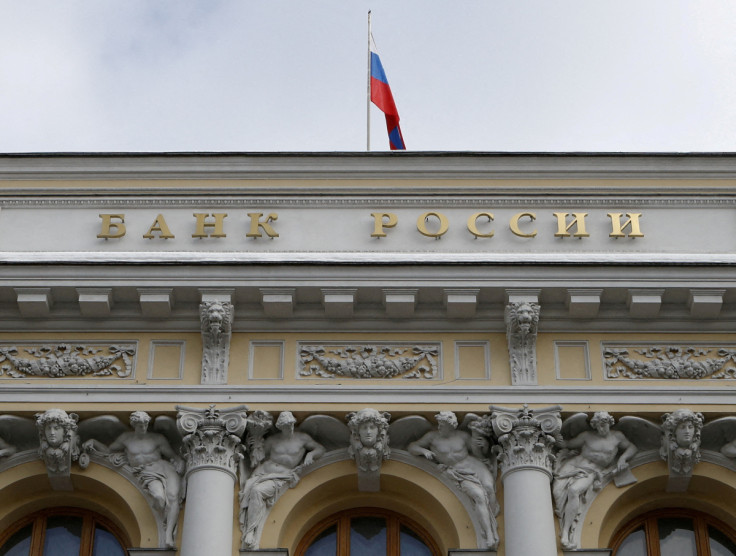Russia Set For Smaller GDP Contraction In 2023, But No Room For Rate Cut: Reuters Poll

Russia's economy is set for a shallower contraction this year than previously thought, a Reuters poll showed on Friday, but above-target inflation will prevent the central bank from trimming its key rate, squeezing growth prospects.
Russia's economy proved resilient in the face of tough Western sanctions imposed after Moscow sent tens of thousands of troops into Ukraine in February last year, but a return to pre-conflict levels of prosperity may be far off as more government spending is directed towards the military.
The average forecast of 16 analysts and economists polled in late March shows Russia's economic downturn continuing, with a drop in gross domestic product (GDP) of 0.9% this year. But that's a marked improvement on the 1.9% contraction forecast in the previous poll. GDP fell an estimated 2.1% in 2022.
Sergey Konygin, chief economist at Sinara Investment Bank, expects GDP growth of 0.5% in 2023, above the consensus forecast and in spite of deteriorating domestic demand.
"The economy is still supported by growth in construction, industrial production and freight transport," Konygin said. "We assume that the economy 'bottomed out' in Q1 2023 and dynamics will begin to improve going forward."
Annual inflation is set to drop below the 4% target in March, against double-digit price rises the previous year. Analysts see inflation passing back above target in the summer and ending this year at 6.0%, up from 5.8% in the previous poll.
Analysts expect the Bank of Russia to hold its key rate at 7.5% at its April 28 board meeting. Rates are seen on hold throughout 2023, before dipping to 6.5% next year.
"Further key rate dynamics depend primarily on inflation risks," said Mikhail Poddubsky, asset manager at MKB Investments, pointing to three arguments in favour of holding rates, even as the central bank maintains a hawkish stance.
"The normalisation of the rate of budget expenditure, declining inflation expectations and the levelling out of the rise in inflation on weekly data after the jump in January and the first half of February," Poddubsky said.
Soaring expenditure pushed Russia's budget to a deficit of 2.58 trillion roubles ($33.13 billion) in January-February, already approaching the annual target for 2023, but the February shortfall was lower than January and the finance ministry has pledged to keep spending under control.
Households' inflation expectations dropped to 10.7% in March. The central bank has warned that inflationary risks remain elevated.
The average of forecasts in the poll suggested the rouble will trade at 75.00 against the dollar a year from now, the same rate as predicted by analysts in late February. Friday's official rate was 77.09 roubles per dollar.
Most of the forecasts in the Reuters poll were based on at least 10 individual projections.
($1 = 77.8650 roubles)
(Reporting and polling by Alexander Marrow and Elena Fabrichnaya; Editing by Mark Potter)
© Copyright Thomson Reuters 2024. All rights reserved.





















